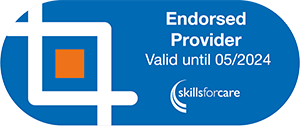The recent autumn budget has offered a glimmer of hope in the form of additional funding for adult social care. Funding that will be rolled out over the coming years; £2.8bn in 2023 and £4.7bn the year after, predicted to facilitate an extra 200,000 care packages. It is very likely that the additional funding will come with increased expectations though. Care providers will be expected to deliver better care, to a larger audience, more efficiently. Currently care professionals, in the main, are at breaking point, so how will expectations be met? One way would be through the use of digital tools to facilitate working smarter opposed to harder.
The reality is that the hope, now pinned on the funding, is a glimmer at the end of very a long dark tunnel. The challenges faced by those on the front line are very much present and huge, insurmountable for some, reflected in the number of providers closing their doors. But the demand and responsibilities for care providers will not go away. We wake up tomorrow and there will still be a huge volume of vulnerable people that require care and support. The challenges are significant and large scale, so we need to act now in ways that are achievable and beneficial for you, your colleagues and those you support.
Moving The Goal Posts
Compounding the daily challenges faced within social care, the landscape is constantly changing. One of the current transitions expected is that social care and health care, as sectors, are to streamline. Working practices merged to better collaborate and deliver high quality care as one joined up process. As a care manager you are expected to consider cross sector challenges, not just the challenges within the walls of your own organisation.
One prominent example of a challenge faced by both health and social care, that could be improved through collaboration and smarter working practises, would be the impact of falls. The current data would suggest the total annual cost of fragility fractures to the UK is estimated at £4.4 billion, which includes £1.1 billion for social care. Hip fractures account for around £2 billion of the total. As you know hospitalisation of those in your care impedes their wellbeing, health and independence. In some cases, training and digital tools would allow the initial fall or fracture to be avoided altogether.
Another significant change taking place now is the move by CQC towards a single assessment framework. The new framework will be a continuous assessment of the of care being delivered, using a wider lens to incorporate best practice in a wider care setting. A greater importance placed on data supplied by the care provider. Greater insight to the relationship a care provider harbours with the friends and family of someone in their care. Greater understanding of a care providers ability to deliver meaningful, quality care. The new framework will be set on a foundation of ‘we statement’s’ to allow care providers to align their efforts to the expectations and evidence their accomplishments. The changes are not monumental, it’s almost like the key lines of enquires have had a haircut, but they will necessitate change management. They will also demand the use of digital tools with an ability to report on all things care related.
Both the alignment of health and social care and the adjustments in the CQC process will undoubtedly result in improvements for individuals receiving care. The changes are already happening and significant in scale. There is an old adage; how do you eat an elephant? The answer being; one spoonful at a time. You can tell the saying is old as it does not consider veganism, but the principle is sound and applicable to the huge challenges and changes encountered throughout social care on a daily basis. We all need to do what we can, when we can, to make improvements. Most of us are not in a position to make systematic, grand scale improvements, so the positive action would be to make incremental changes building towards better outcomes at any given opportunity.
One Spoonful at a Time
We need to embrace these changes. The people in your care need you not to be deterred by the challenges. How do we achieve that? One spoonful at a time, one small step at a time. One new process, one new digital tool at a time, one new training session, one new collaboration. Improve what you do incrementally and evidence what you do and how it has improved over time. By setting the right tools and processes in place you will lift your colleagues who in turn will support other individuals. By having the right digital tools, the collaboration with health care becomes more attainable. The risk of falls in your care setting is reduced. The constant flow of data soon to be required by the CQC will become easier. The right digital tools will allow you to set the foundation to meet the single assessment framework, but more importantly you will lift your colleagues and raise the standard of care you are able to provide.
KareInn, market leading care planning software, and Redcrier Training Solutions are collaborating to give you a suite of digital tools that will help you navigate the current challenges and changes you are having to deal with. KareInn provide digital care planning software that, amongst other tools, allows you to review, map and reduce the risk and impact of falls within your care setting. eBox, from Redcrier Training Solutions, offers live reporting on all aspects of your training which allows you to identify areas of weakness and build on areas of strength. Both systems will offer you the data feed that the CQC will be demanding. If you have any questions on how our digital tools will allow you to offer insight, data exports that will result in better care, contact us today.








